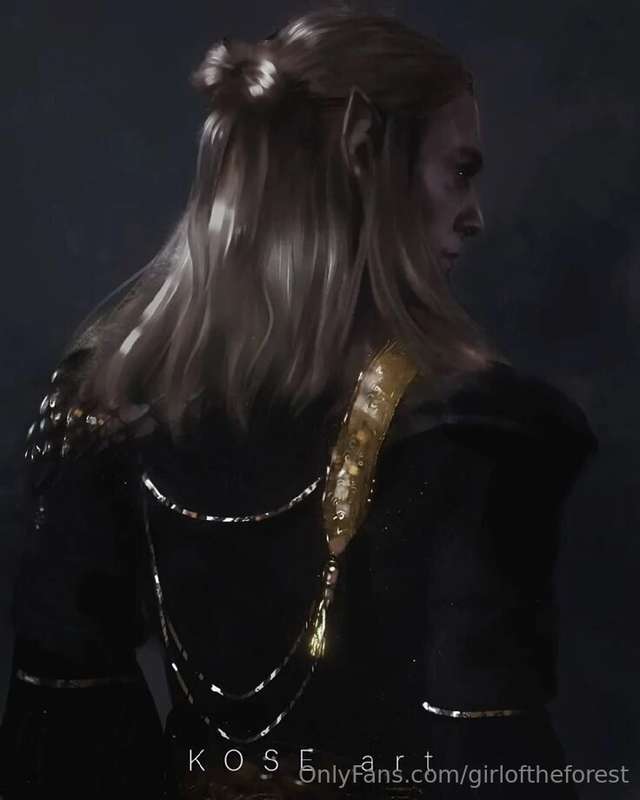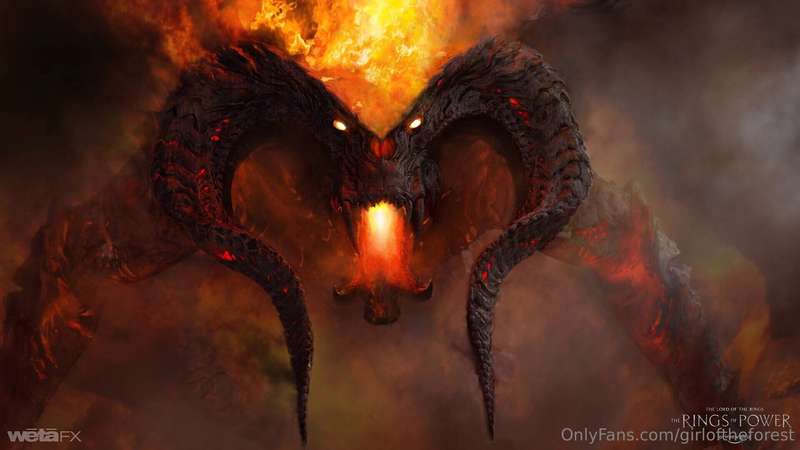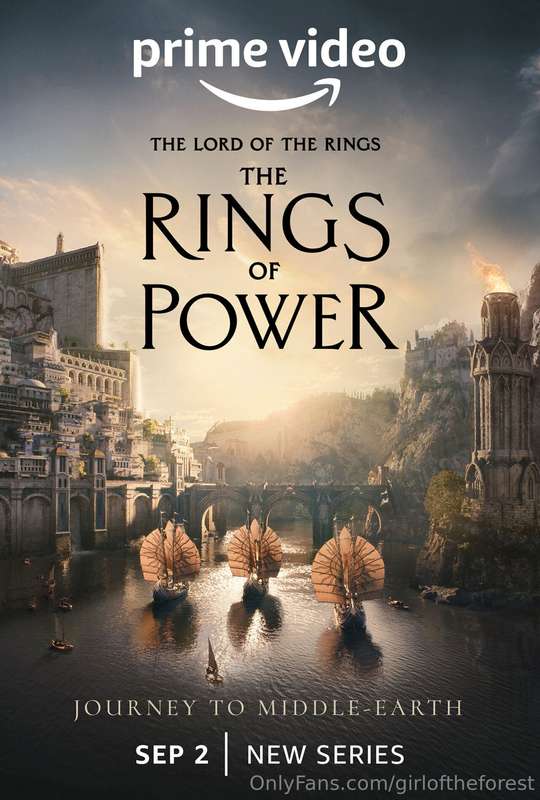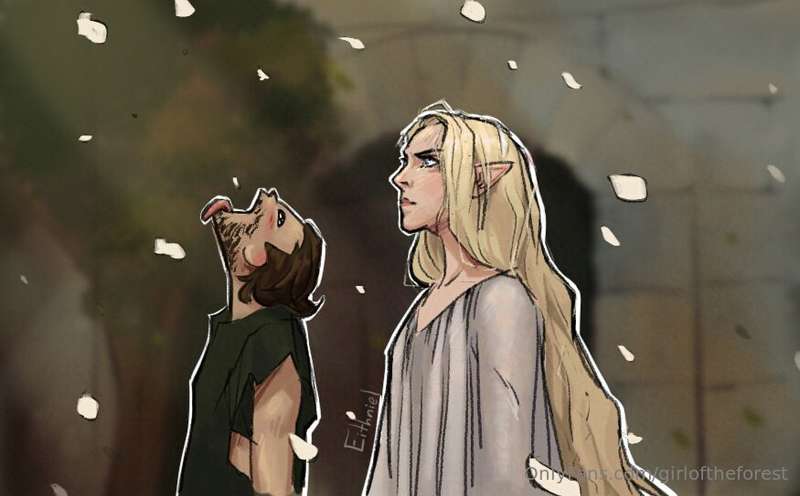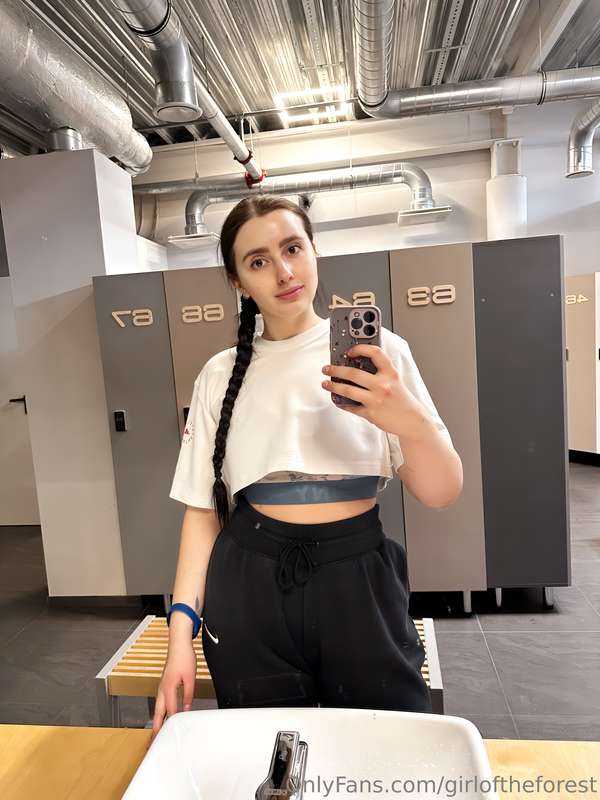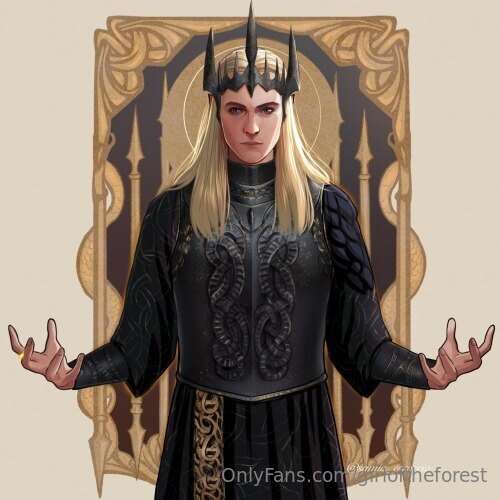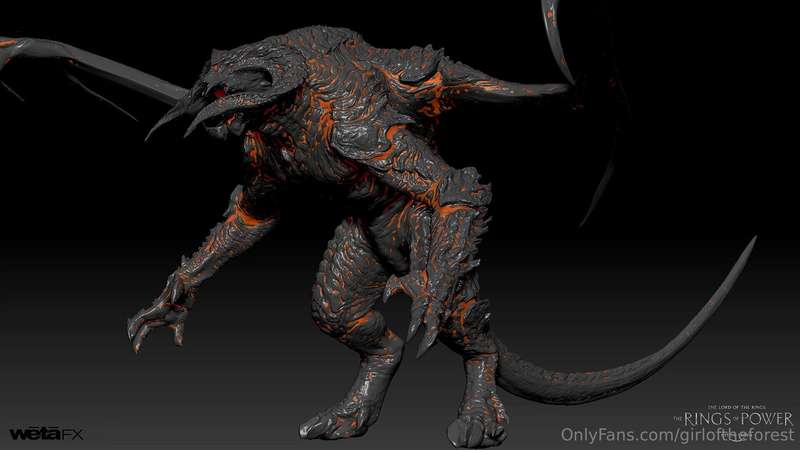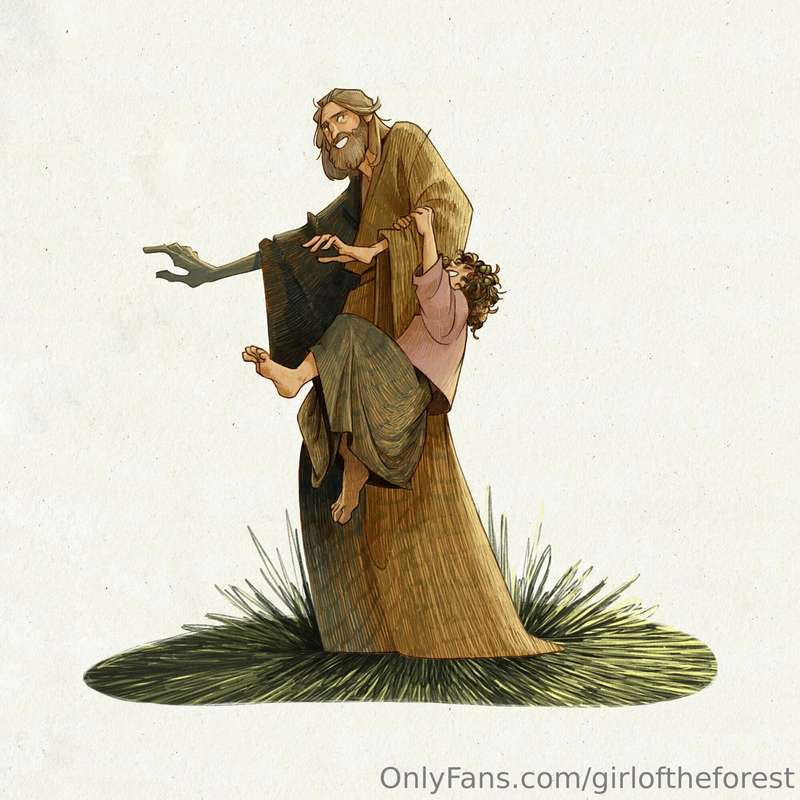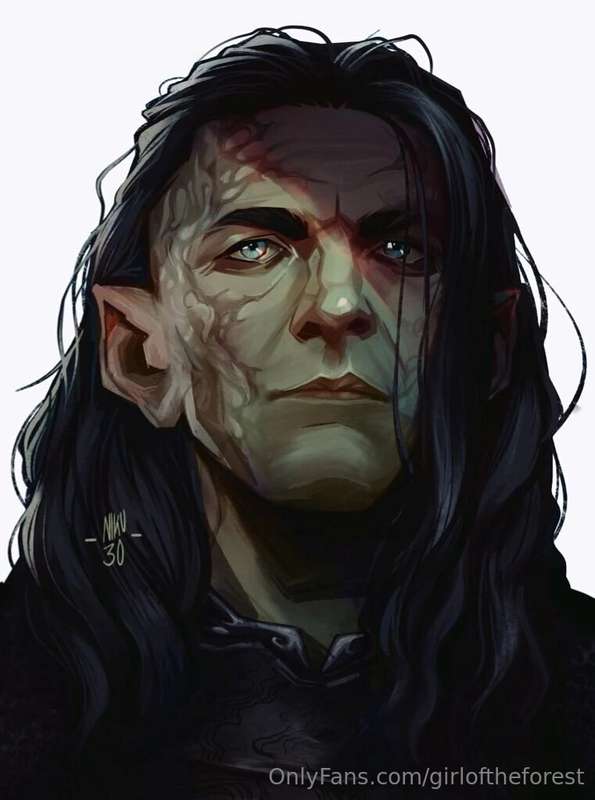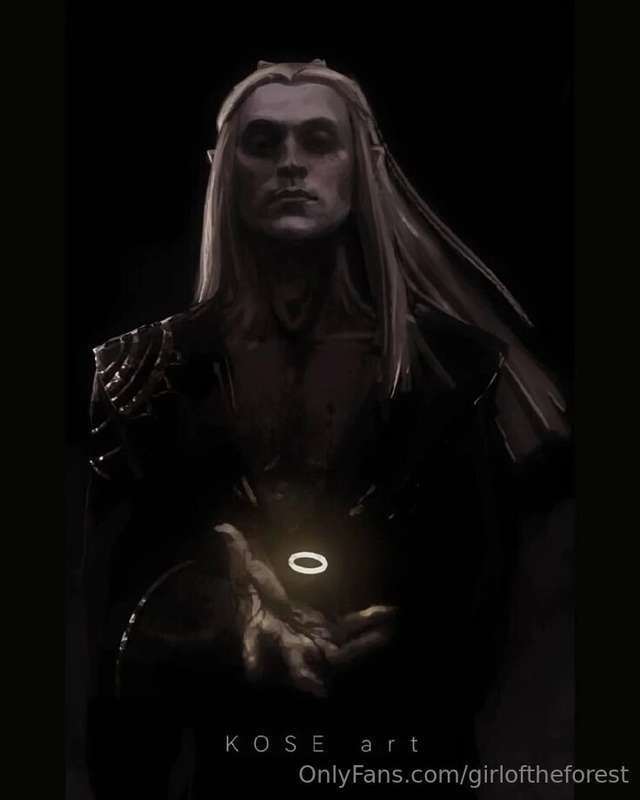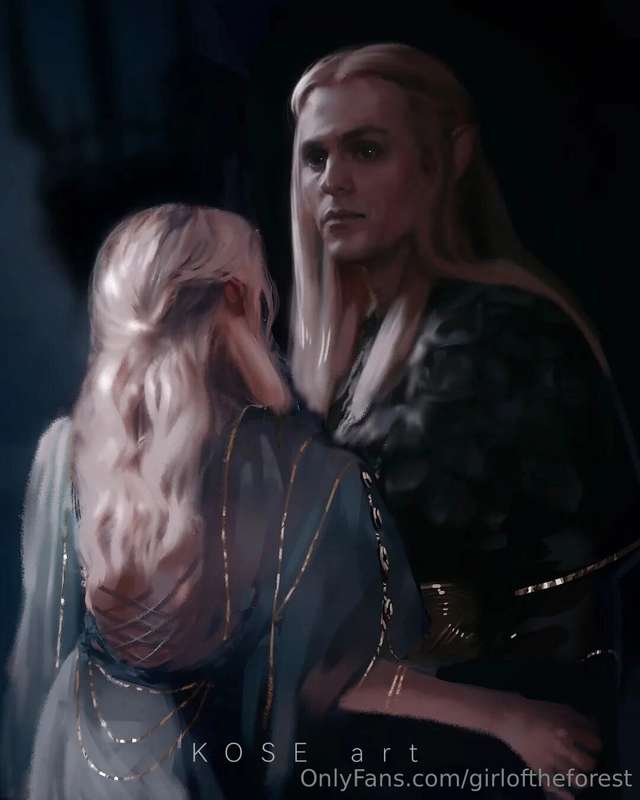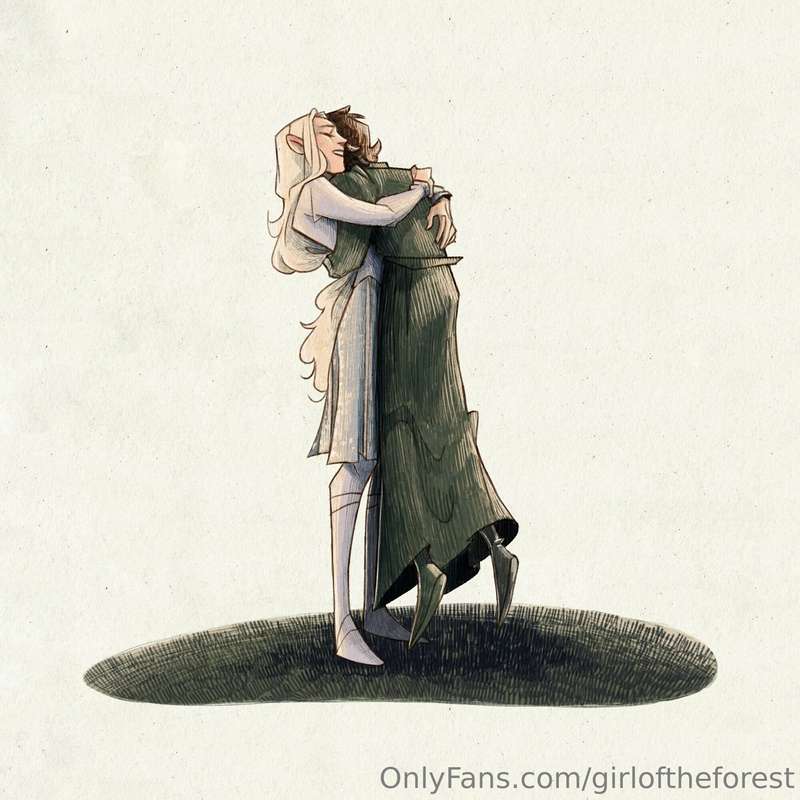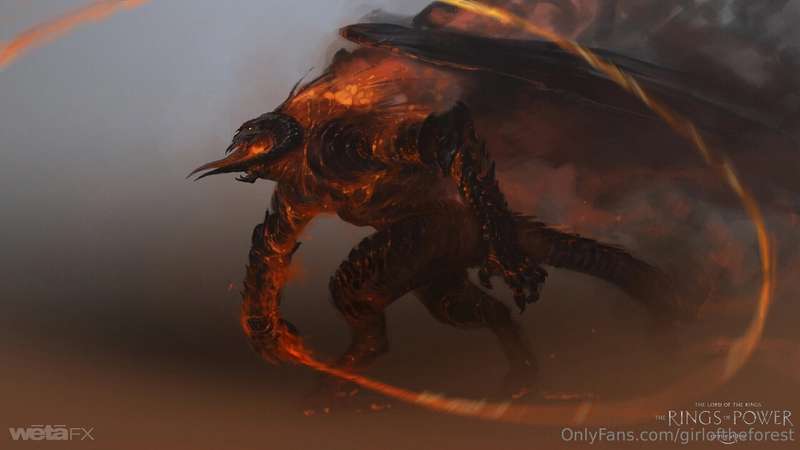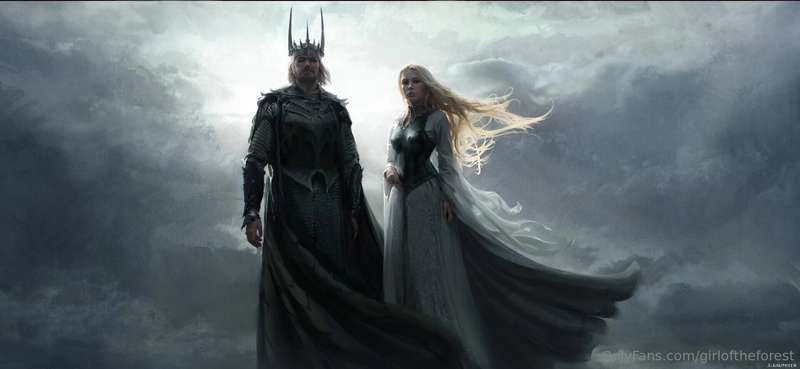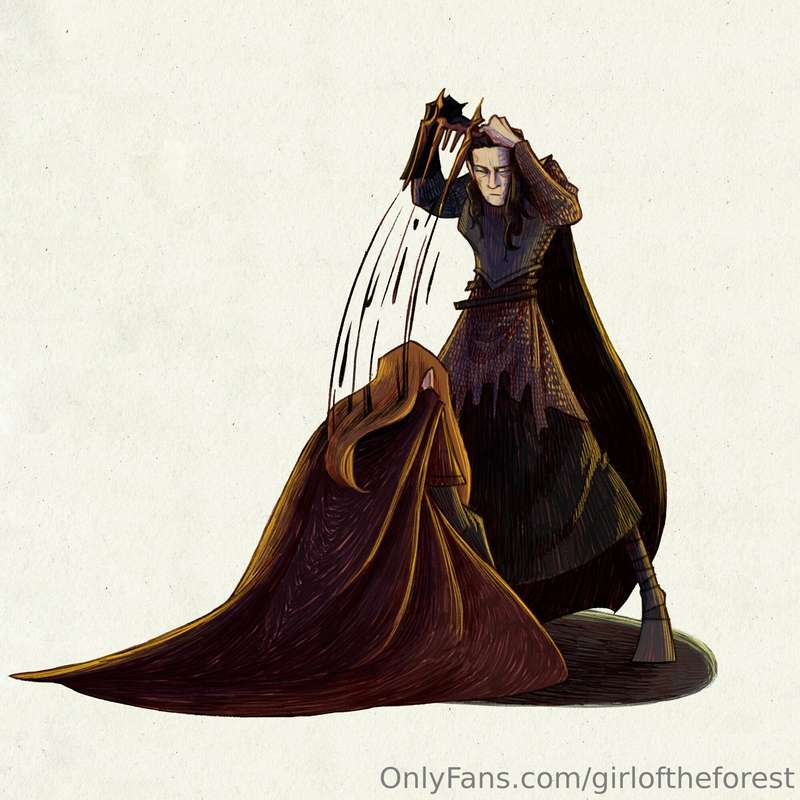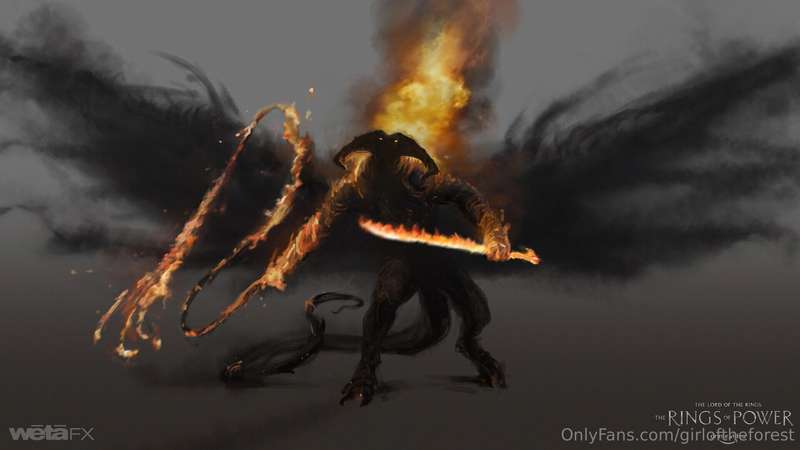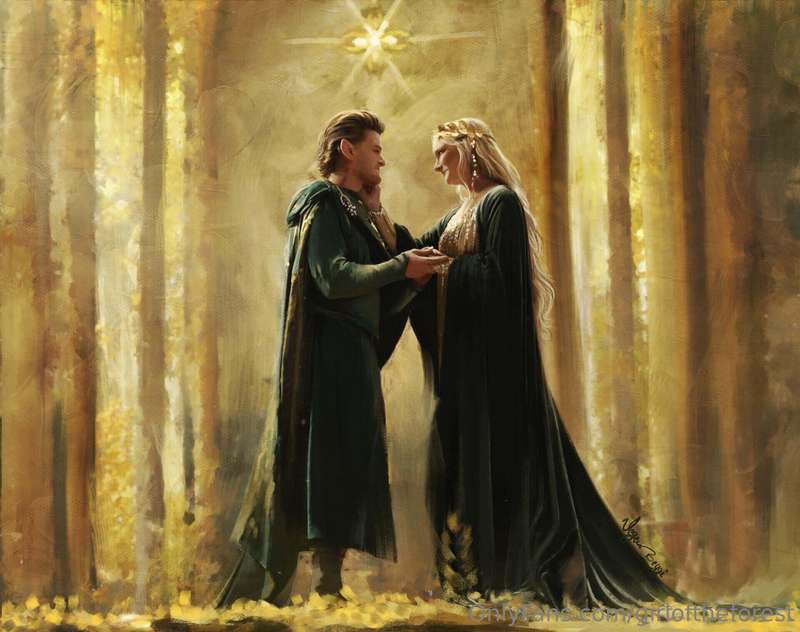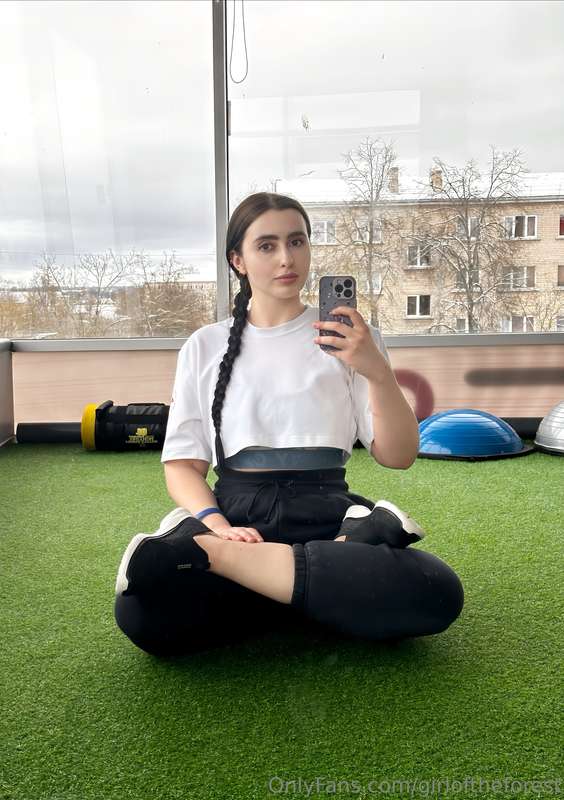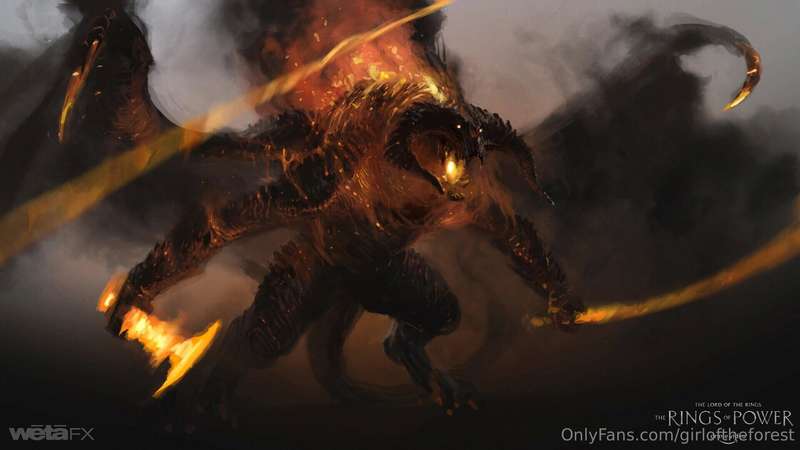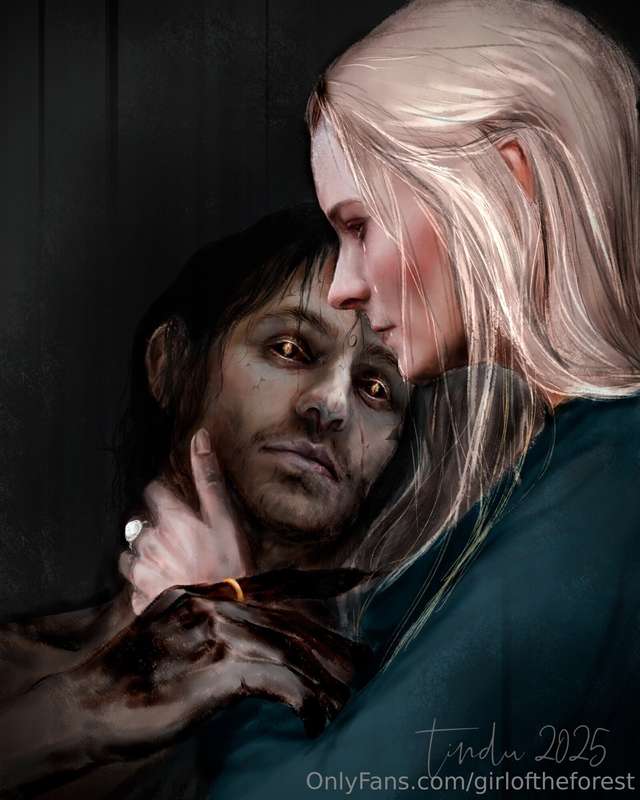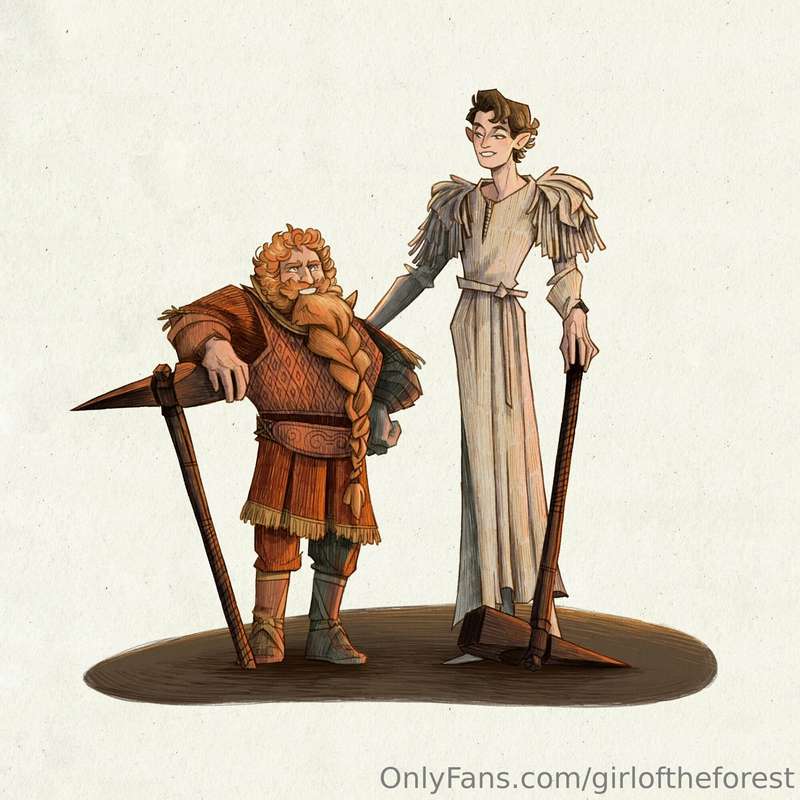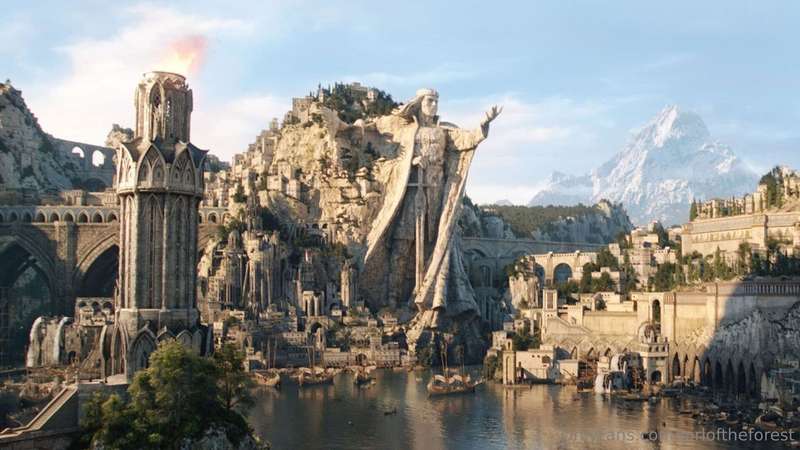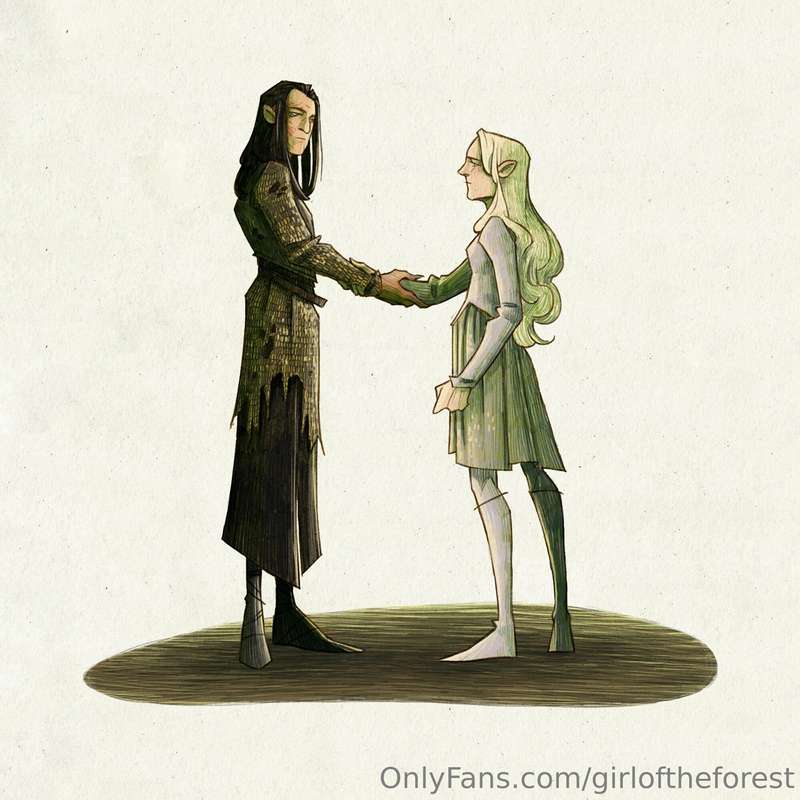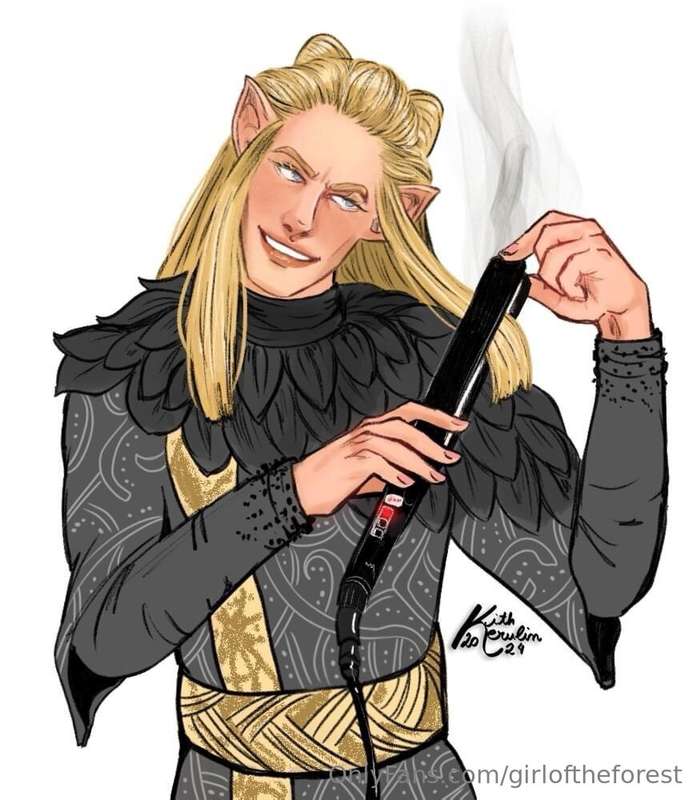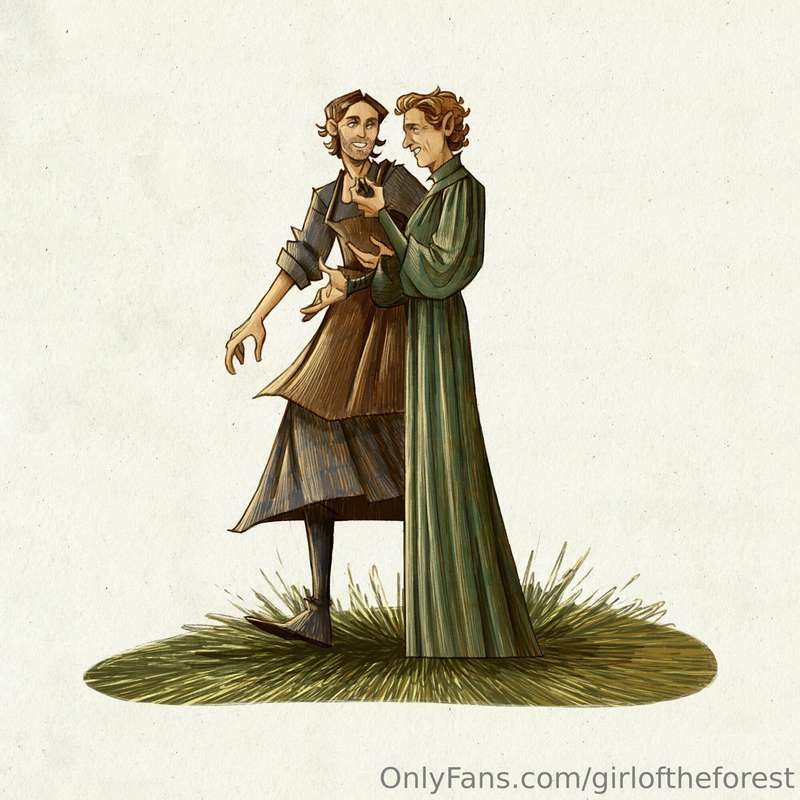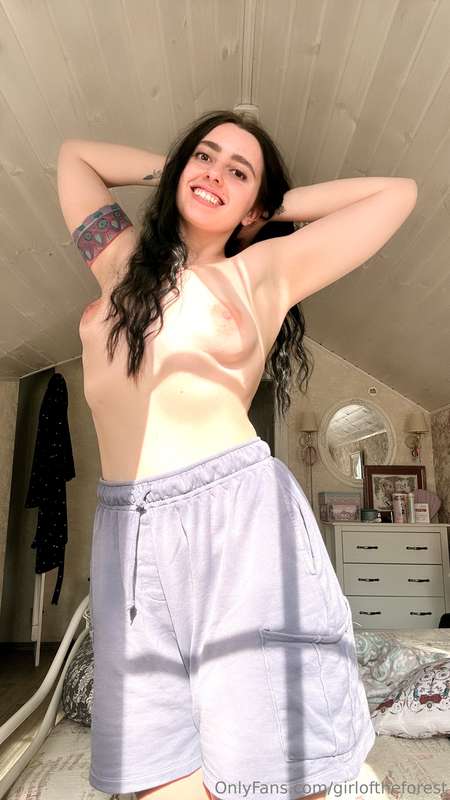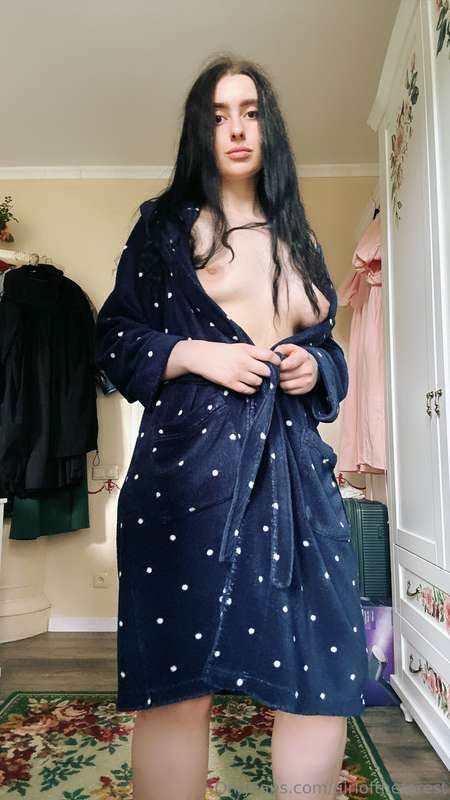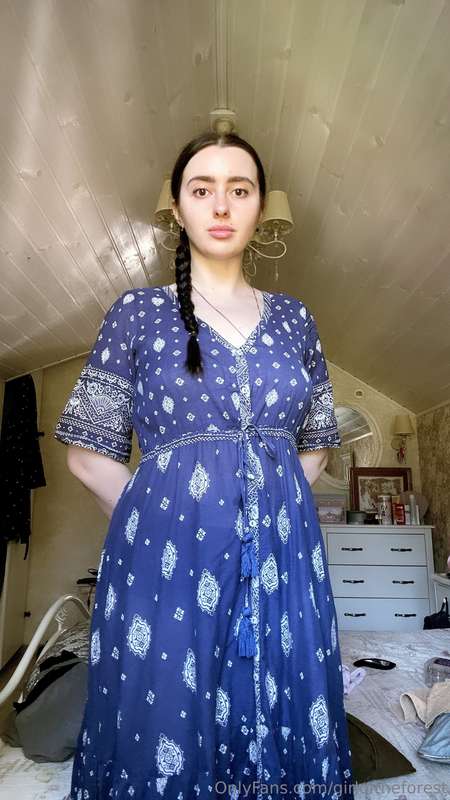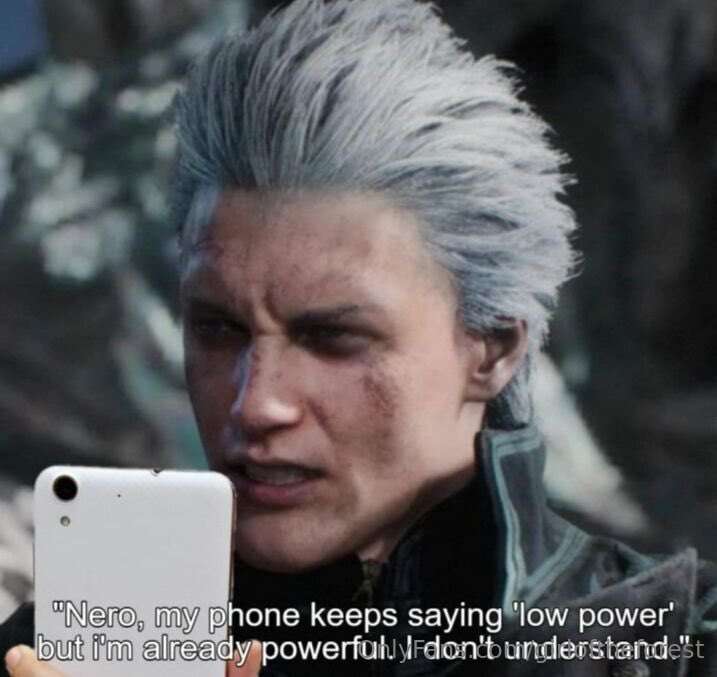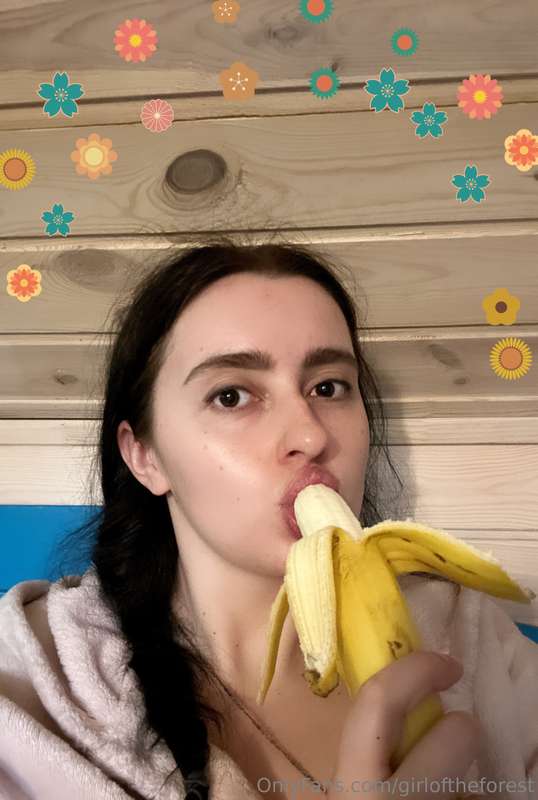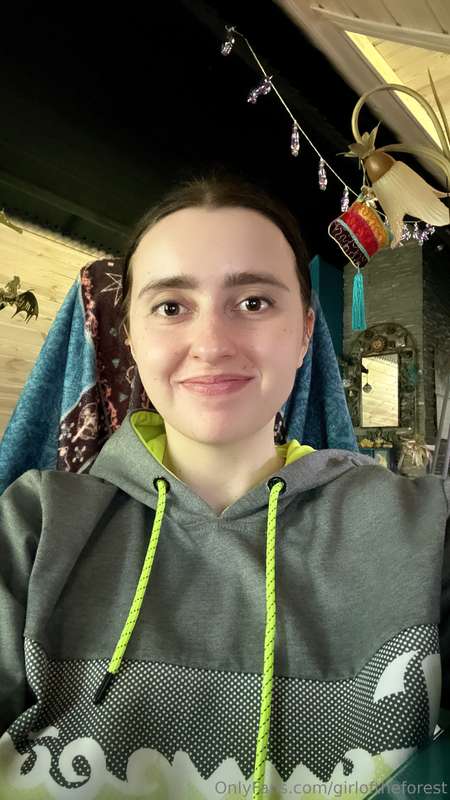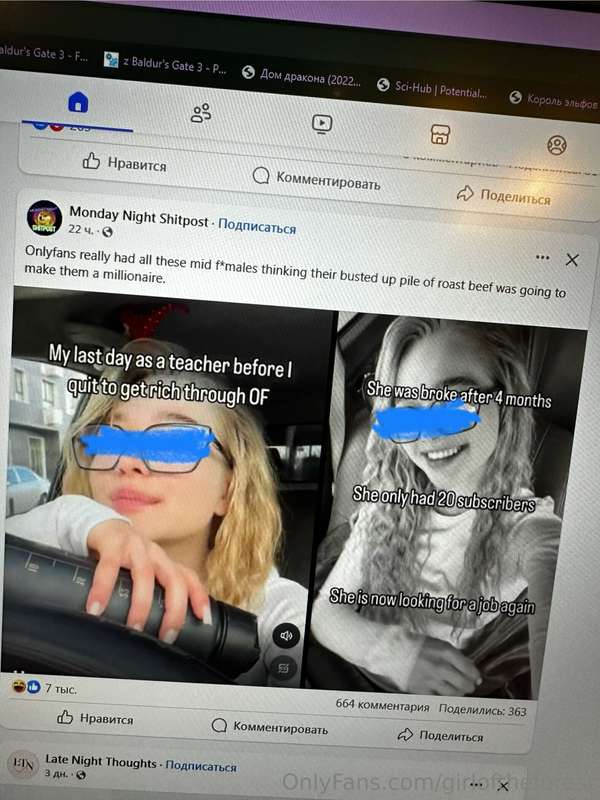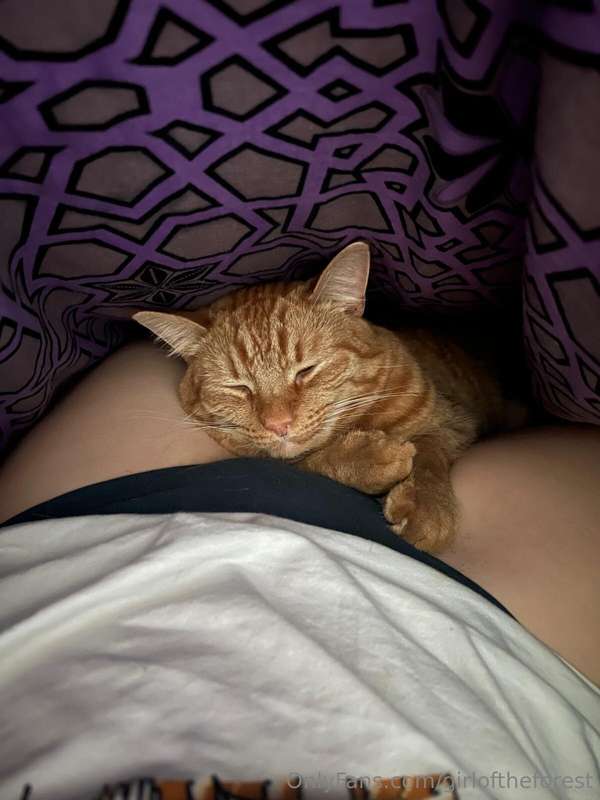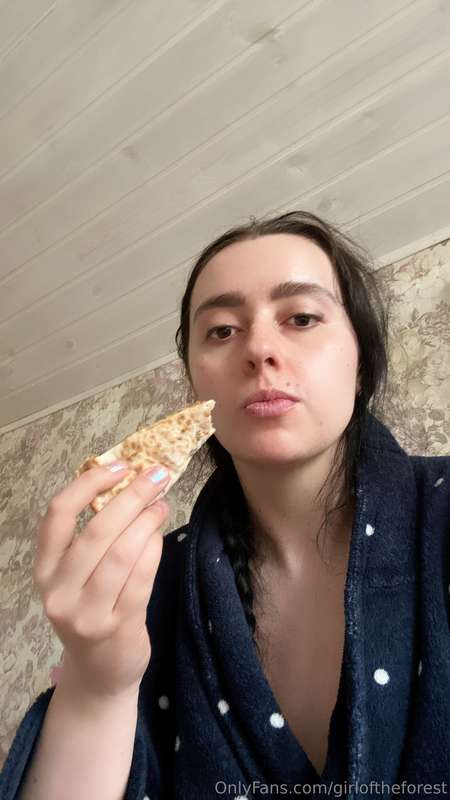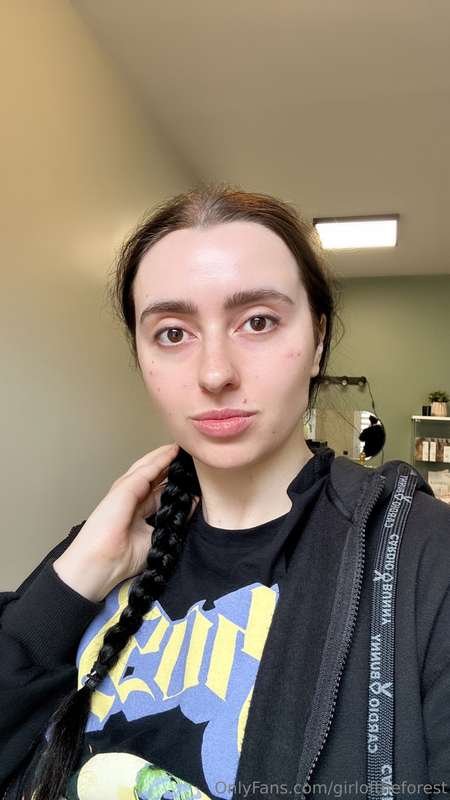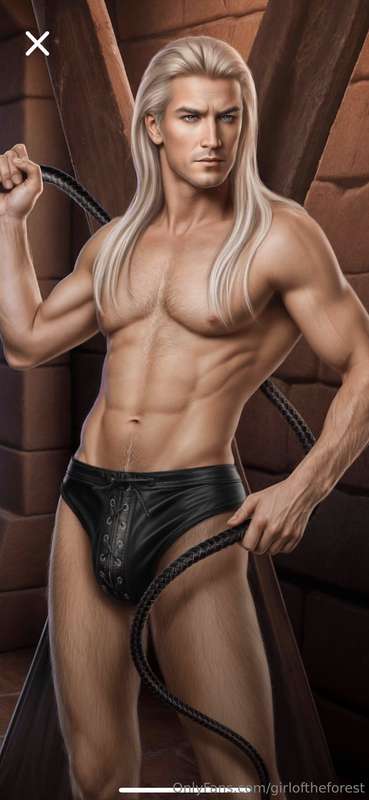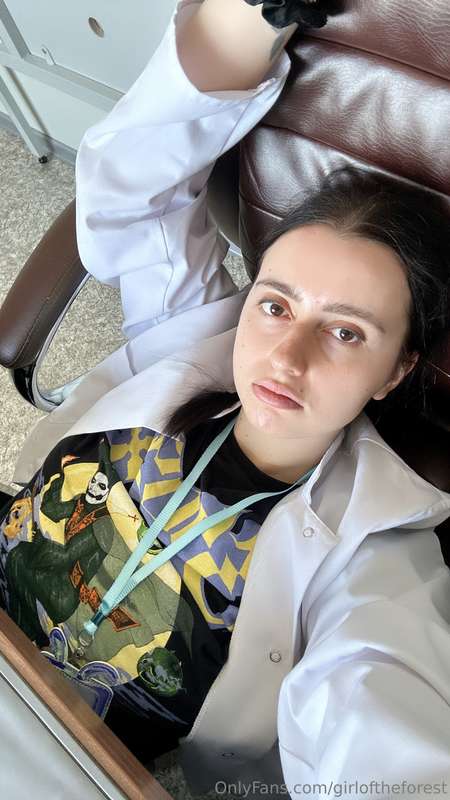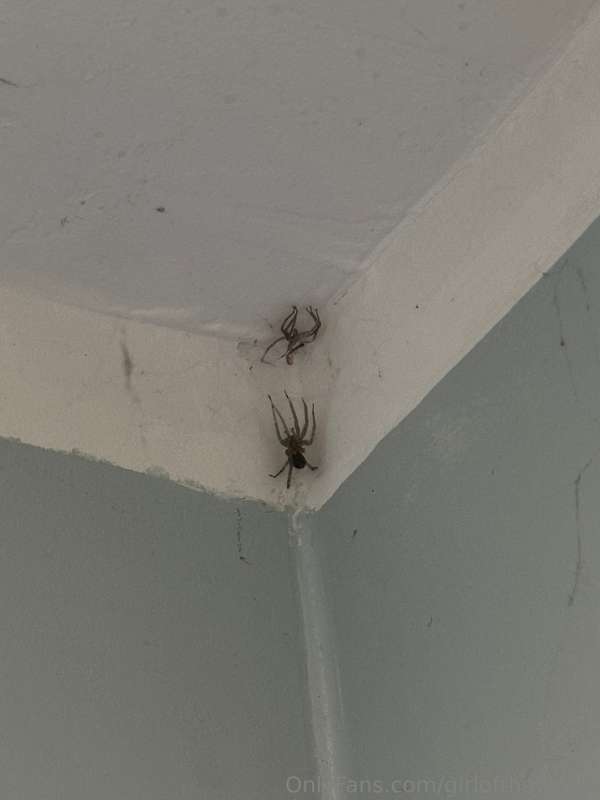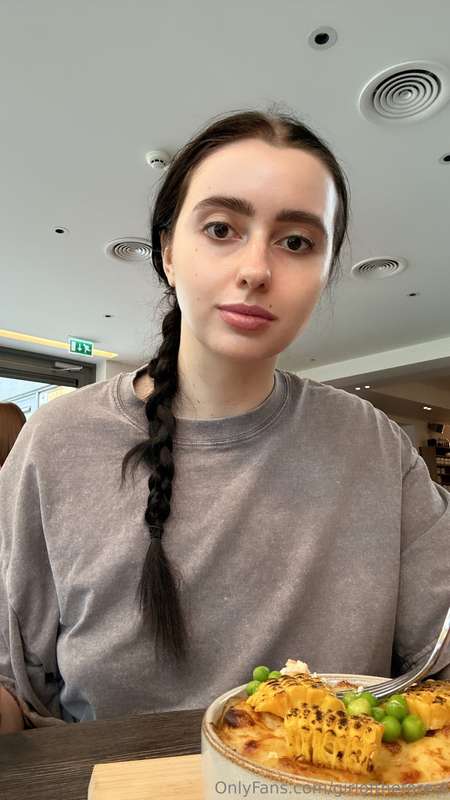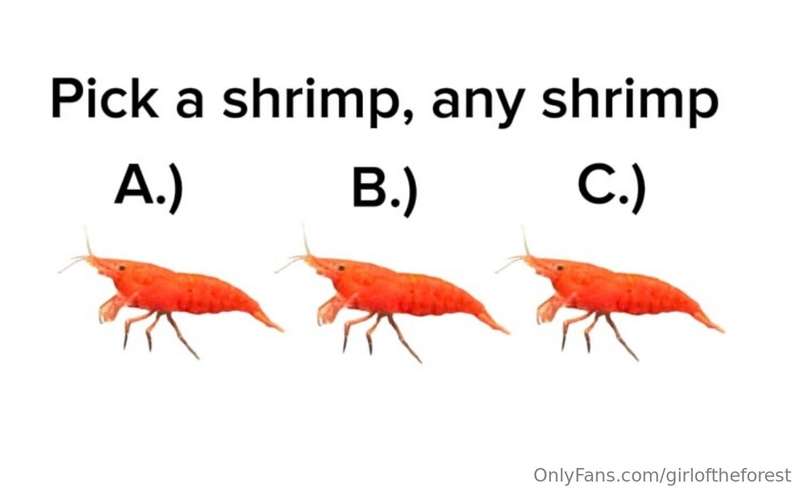I finally pulled my exhausted ass together to write a post a..
I finally pulled my exhausted ass together to write a post about The Rings of Power. I won’t attach screenshots from the show because OnlyFans bans photos of real people, so instead, enjoy some pics of me at the gym and some fan art from the series.
Even if you’re not a Lord of the Rings fan and don’t live in a sewer, you’ve probably heard that this is Amazon’s most expensive show in history. As for me, my entire personality is built around The Lord of the Rings—I’ve rewatched all the movies, read every book available, and I can even tell apart characters like Fingolfin, Finarfin, and Fenozepam from The Silmarillion. I was waiting for this show. I was reallywaiting for it. Considering its budget was bigger than that of the original films, I hoped for a stunningly beautiful production, even though I suspected it would end up being generic fantasy.
I got a little uneasy when I saw the writers—they looked like two versions of Vitalik (my ex-friend, which is a very bad sign). Their portfolio… well, you can look it up yourself. It was also concerning that the show’s team kicked out all the scholars who study Tolkien’s works and instead brought in a few individuals with dyed armpits and obesity, which often signals a certain kind of content.
The real disappointment came when the trailer dropped—and it accidentally included a short-haired Black football player messing around with props. It became clear that the team was careless, didn’t even protect the set’s privacy, allowed random people to walk in, and then didn’t even review the footage before release.
And yet, even then, I still had hope. I always expect the worst, and the worst always happens, so I’m never surprised. But sometimes, I let myself believe—only for the worst to happen anyway. Well, whatever.
The show is just a complete disaster. That could be the entire review. But I know my fans love to read my rants, so I’ll write a bit more. If you’re unfamiliar with The Lord of the Rings and The Silmarillion,there’s probably no point in reading this—I won’t explain the original storylines just to break down the show’s logical inconsistencies, because that would take an entire book. There’s a lot to discuss, but I’ll try to give a broad impression.
The show has multiple storylines because it thinks it’s Game of Thrones, except every storyline is garbage. Unlike Game of Thrones, these plots have no real connections or interdependencies. It’s just a bunch of random characters going on separate adventures in different locations. Sometimes they cross paths, then separate again, but Peppa Pig has more character development than this.
One plotline follows the Harfoots and some mentally deficient space hobo who is kind of supposed to be Gandalf. The Harfoots are disgusting—in the timeline of the show, they’re still a nomadic tribe. Their small community includes representatives of every race and ethnicity, they dress in rags, and they present themselves as a close-knit group, but in reality, they literally abandon anyone who breaks an ankle.
Aside from the hobo, the main characters in this storyline are two Harfoot girls—basically female versions of Frodo and Sam. They’re not bad, the actresses are well-cast and decent, and the characters aren’t annoying, though they’re not particularly interesting either. This community is probably supposed to resemble Romani travelers, but they just come off as filthy vagrants. And so they wander in circles, following the seasons, with their mentally deficient space Gandalf.
Then there’s the storyline of the short-haired Black football player who, for some reason, is an elf. He lives in some random Elven watchtower near a shitty village where 8 out of 10 people are Black, 5 are Asian, 16 are Indian, and 9 are Arab—you know, the usual. The Elves watch over this village because its ancestors once served the Dark Lord Morgoth. This elf is in love with the only clean woman in the village, because all the other residents smear shit on their faces. The woman is strong, independent, and the smartest person around. At this point, I got too lazy to keep describing this plotline—who even cares.
Then we have the dark elf Adar, who gathered the surviving orcs after Morgoth and his chief lieutenant Sauron fell. He sees them as his people and wants to claim lands for them to live in.
Then there’s the elf storyline. Here we have a fat king, flashback Ned Stark with a hairdo drowned in hairspray, an old grandpa with the same, some 4’11” general with a clenched jaw and paranoid schizophrenia (for some reason named Galadriel), and, shockingly, one regular white human man.
The fat elf is Gil-galad, the High King of the Elves, who has noticed that magic is disappearing from their lands, meaning it’s time for them to sail west to the sacred lands. By the way, I actually like the actor, even though he’s not in peak athletic form and has a slightly puffy face. He does look a lot like Gil-galad from the original trilogy, just a bit softer. The costume designers really did him dirty with the tight sleeves—first of all, you can tell he’s uncomfortable, and second, they make it obvious that he has a bulky torso but thin arms. He looks better in armor in Season 2, where you can at least imagine he’s a big, muscular warrior.
Flashback Ned Stark is Elrond, who works as a scribe for Gil-galad. Overall, he’s not a bad character— tactful, sharp-minded, trying to mediate conflicts, and with a clear moral compass. He’s best friends with the dwarf prince and eventually convinces him to hand over some magical metal to restore magic to the world.
The old elf is Celebrimbor, the legendary Elven smith who will eventually forge the Rings of Power.
Then there’s the elf woman they call Galadriel, supposedly the main character. She’s a strong female lead—meaning she’s dumb, aggressive, rude, paranoid, constantly resorting to physical violence, yet somehow the strongest, most agile, and positioned by the showrunners as the absolute force of good. She’s apparently some kind of military commander under Gil-galad, though I have no idea what she commands, what armies she supposedly leads—I never actually saw them.
She’s also ugly as sin. If you think she’s beautiful, you should get your eyes and brain checked. I’m not entirely sure why they named her Galadriel—maybe it’s some kind of subtle reference to The Lord of the Rings. But honestly, they could’ve named her Harry Potter or Bambi, and it would have made just as much sense. So from now on, I’ll just call her Galia.
And then there’s the white human man. He’s charming, tactful, thoughtful, and sensitive. He tries to be likable and take the path of least resistance. He carries a deep personal tragedy and confesses to Galia that he just wants to leave everything behind and start a simple life as a tradesman, far from all the chaos.
But Galia forces him into the role of the long-lost king of men because… well… she just decided he was. He denies it, but she relentlessly pressures and manipulates him into leading an army to save the Southlands from Adar’s orcs. And this kingdom he’s supposed to save? Drum roll, please… It’s that same tiny village of 10 people from the Black football player’s storyline.
The white human man is actually a very likable and charismatic character—the actor is surprisingly good. His face radiates intelligence and a kind of natural warmth in his expressions. He also plays really well against the completely unhinged Galia.
Oh, and I forgot to mention—Galia’s main goal in the story is to find and kill Sauron, who, a long time ago, killed her brother (the white, short-haired football player).
And, well… the white human man is Sauron.
Honestly, even without revealing his name, it was obvious he was the main villain. He also appears to be heterosexual, which is just unacceptable.
Before Galia finds out who he really is, the two of them—along with an army from the island of superhumans, Númenor—ride in to save the village. The white human man gets wounded, and Galia rushes him back to Grandpa Elf, aka Celebrimbor the Smith.
There, Celebrimbor struggles with what to do with the magical metal Elrond got from the dwarves—the piece is just too small. And so the white human man suggests that he… make an alloy… because one metal can enhance the qualities of another…
To be clear, this is a conversation between a god-tier blacksmith and the second-greatest smith in history.
Galia, upon hearing this absolute galaxy-brain revelation, suddenly starts to suspect that the white human man might not be who he says he is. She exposes him for not actually being a king (shocking!). He then admits he’s Sauron, she attacks him, he offers her a chance to rule by his side, but she tells him to get lost, so he runs off.
Oh, and there’s also a dwarf storyline, but I couldn’t care less about it.
So that’s basically the plot of Season 1 in broad strokes. It doesn’t even sound catastrophic, but unfortunately, the show is unbelievably stupid.
The dialogue is overly dramatic, but it makes no sense. Every character speaks in grand, pompous monologues, throwing around ridiculous metaphors and deep-sounding wisdom that makes you want to bash your head against a wall.
For example, Galadriel’s older brother tells little Galia:
“Do you know why a ship floats while a stone sinks? Because the stone looks down, and the ship looks up.”
That probably doesn’t even need commentary. Oh, and that’s literally the opening scene of the show.
Another gem comes from the storyline with brain-damaged Gandalf. The villains try to convince him that he’s also a villain, but Gandalf just says, “I am good,” and—poof!—the villains are dispelled.
And then there’s the very first scene of the entire series. A voiceover dramatically tells us that nothing is born evil… while, at the same time, we watch a group of little elves bully little Galia, and she straight-up beats the crap out of them. She even punches one in the face.
????????
The dialogue is painful. You can tell it was written by people whose cultural references don’t extend beyond the menu at a soy latte café.
The costumes are a disaster. They look like theater props—lacking detail, interesting cuts, or quality fabrics. You can see how cheap they are. The jewelry is big and gaudy, and the designs feel more suited for a stage production than a high-budget TV show.
And the armor? Dear god. It’s plastic. It’s literally worn over blouses that have printed textures to simulate the look of armor. The helmets are oversized and just sit on top of bare necks, with no protective collars to balance the design. The horse armor is terrible, too.
The extras are few. Large armies are just copied and pasted with CGI, and any up-close battle scenes make it painfully obvious how small and cheap everything is.
And the fight choreography? Bad. Very, very, VERY bad.
That said, I actually loved the final battle between Sauron and Galia at the end of Season 2. I was genuinely mesmerized by their chemistry. And personally? I really like Sauron’s design and armor at that point in the show. This version of the character is surprisingly fantastic—like he was written completely separately from the rest of the series.
I want to point out something right away—opinions on show-Sauron are very divided, but in a healthyway. Meaning, it mostly comes down to personal taste, individual preferences, and how much a person fills in the gaps using their knowledge of the original. He’s not a painfully accurate, book-precise Sauron, but he’s also not some grotesque parody wearing his name. Personally, I always imagined Sauron differently, but this version was still very enjoyable to watch.
Unfortunately, analyzing his character properly would take another massive post, so I’ll skip that here.
I also really liked Adar—not my type of character, but his motivations make sense, his design is cool, and he carries real tragedy within him. Plus, both actors who played him (one in Season 1, another in Season 2) did a fantastic job conveying that depth.
And I have to give massive praise to the Orc design. They used practical effects and makeup, and the result is absolutely stunning.
What I definitely won’t be praising, though, is Galia. I genuinely think the actress was /fo/r/ce/d/ to act this way. She fits the absolute stereotype of a Karen—permanently sour expression, beady little paranoid eyes, locked jaw, and an upper lip that keeps twitching in disgust. It’s just… bad. Really, reallybad. And combined with the actress’s small, frail frame, it gives off serious “angry chihuahua” energy.
And of course, it’s bizarre that none of the other characters react to her constant rudeness.
I also can’t stand the show’s /fo/r/ce/d/ racial diversity with zero logical explanation. I know this topic has been debated to death, but let’s be real—developed countries shamelessly hide behind “tolerance” like a fig leaf.
Personally, I see two alternatives that would actually work.
The first is simple—just make the characters beautiful. That’s it. You want a Black elf? Great. Give him gorgeous dreadlocks woven with golden threads and intricate braids. Highlight his sharp cheekbones with a golden shimmer. Dress him in deep red robes, like a fiery phoenix. Make him stunning—so striking that viewers can’t look away.
Instead, we got a lineup of bald, crooked, asymmetrical, too short, too tall, ugly elves. But hey, at least they’re diverse! And you know why they did this? So that when someone with functioning eyes asks why these elves look like crap, the creators can shriek about racism. That way, they get to both waste the budget and play the victim. Clever little grifters.
The second alternative is what I would have done. I love racial diversity, I love the beauty of different people. But if a character looks different from the locals, that difference should mean something to the story. And yes—if an entire region is white and there’s one Black person, people will look at him funny. Pretending otherwise is just nonsense.
And that difference can actually enhance the drama of the character—or, alternatively, give them a unique advantage.
For example, take the Black elf. I would have made him the kid of a high-ranking servant of Morgoth who escaped and was cursed by the Dark Lord, and an Elven woman. Morgoth’s forces included Eastern men with dark or yellow skin, so it would make perfect sense for their kid to be a dark-skinned half-elf. He would carry Morgoth’s curse, pulling him toward darkness, while desperately trying to integrate into his mother’s people, who would still see him as an outsider—despite the years he’s spent among them.
That’s a backstory I just pulled out of thin air in under a minute.
And yes—all of my characters would be beautiful. No bald heads. No stiff, lacquered hair.
Because this is supposed to be a show about Tolkien’s stunning, mythical world.
If I wanted to see ugly people, I’d just open a dating app.
Some actor—apparently from House of the Dragon—said in an interview that people are so shocked by Black characters, yet the show literally has dragons. You know, implying that the audience is just a bunch of stinking racists.
Meanwhile, House of the Dragon constantly brings up sexism and misogyny. So, I don’t get it—what’s with the hypocrisy? Let’s just pretend there’s no difference between male and female characters at all! Otherwise, it’s just unfair—skin color and major visual differences don’t exist, but boobs? Those, we definitely notice.
How does that make sense?
I always say this, and I will keep saying it: this is pure schizophrenia.
You can feel however you want about a person of another race—they can be your best friend, your family, whatever. But you will always know that they come from a different background, that their roots aren’t from your homeland. And that’s normal. People move around.
But in a medieval fantasy setting like Rings of Power, there’s no mass-scale, fast, and accessible transportation. So obviously, the racial distribution would lean toward the native population.
And the dumber people are, the nastier they get. The village—the so-called kingdom—reacted to elves with pure aggression.
So why the hell are they suddenly super tolerant of every other difference?
Anyway, I should probably mention the soundtrack. Some people liked it, but to me, it’s just generic fantasy music.
That said, I adore one song—Old Tom Bombadil. I’m obsessed with it.
Honestly? I highly recommend watching this show. The first time, it was painful and shocking. But a year later, after accepting it for what it is, I rewatched it with my mom, and we had an absolute blast. It was hysterical.
I’m grateful to this show for the tons of TikToks and fan art of Sauron and Galadriel—which inspired me to come up with my own alternate story for them.
For now, that’s all.
